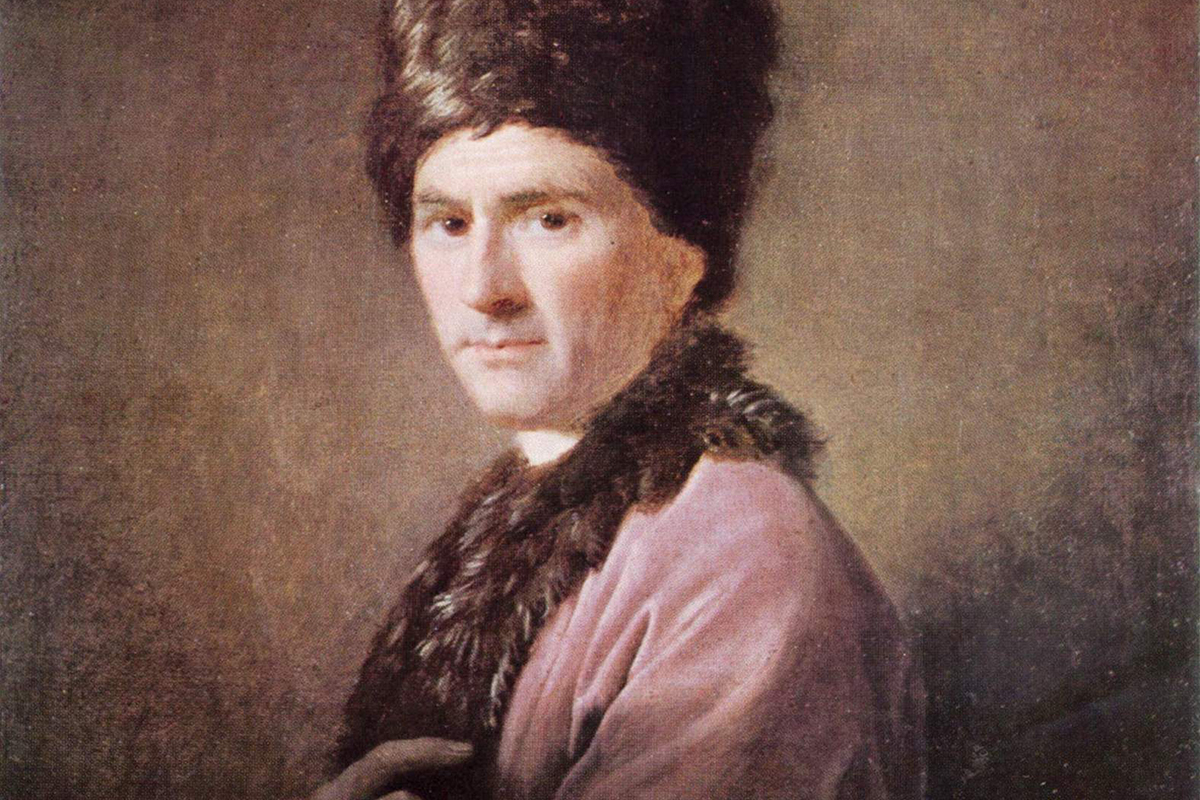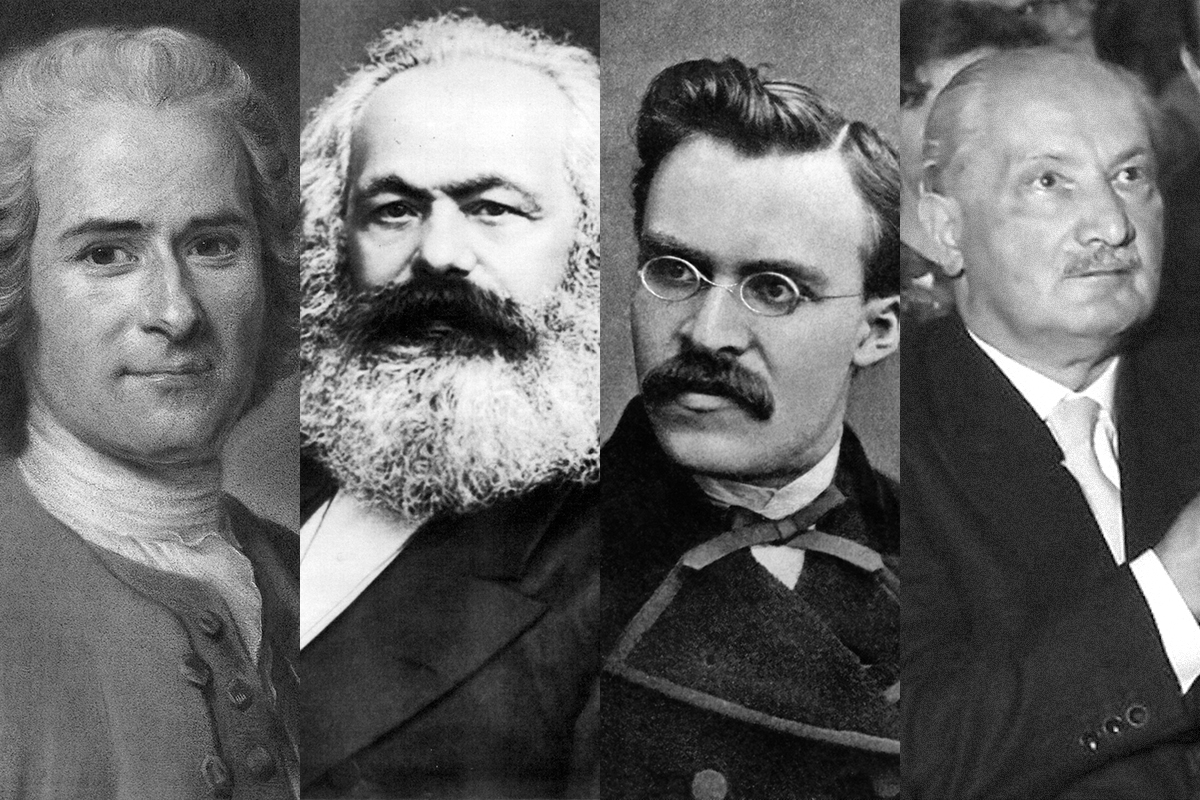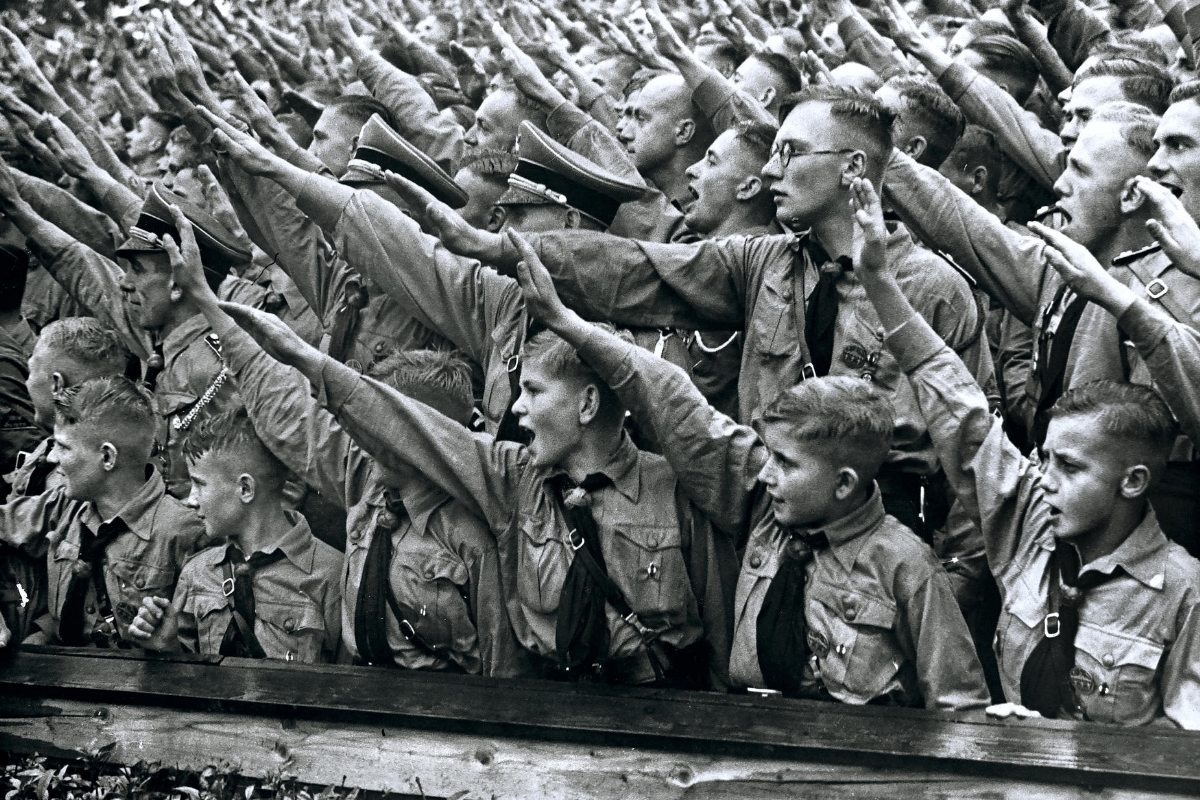recent
Why We Should Read Rousseau
It is certainly the case that Rousseau was not an unambiguous friend to the liberal Enlightenment.

This the second instalment in a series of essays by Matt McManus examining the work and legacies of the totalitarian philosophers.
At the end of January I wrote an article entitled “How Should We Read the Totalitarian Philosophers” for Quillette. I argued that liberals, whether classical or egalitarian, can find insights in the work of authors who—rightly or wrongly—have come to be associated with illiberal and even totalitarian movements. The four authors I examined were Rousseau, Marx, Nietzsche, and Heidegger. Although the general point that these authors contribute ideas of value was well received, the article was justifiably criticized for summarizing each individual’s positions too quickly. This resulted in a loss of depth and left some readers wanting a more thorough account of what was valuable in each author.
Over the next few months I will be publishing an article on each thinker, presenting an argument for their enduring contribution. Since even a few thousand words is hardly sufficient to scratch the surface of each thinker’s complex positions, the interpretation I will be presenting will be highly qualified. I will begin each article with a brief discussion on the controversy surrounding the individual author, and why their writing is associated with totalitarian movements. After evaluating whether this association is fair or not, the articles will conclude with a few points that I think even liberals can take away from their writing.
The Controversy Surrounding Rousseau
Man is born free, and everywhere he is in chains. Here’s one who thinks he is the master of others, yet he is more enslaved than they are. How did this change come about? I don’t know. What can make it legitimate? That’s a question that I think I can answer.
~Jean-Jacques Rousseau, The Social Contract
As I mentioned in the original article, it can be very difficult to criticize the positions of Rousseau due to their consistently protean quality. One never knows whether one will encounter the stern and even puritanical Jean-Jacques, or the rhapsodic and sentimental Rousseau; the Enlightenment defender of Geneva, or the proto-Romantic critic of liberal individualism; the revolutionary defender of freedom and equality, or the frightening demagogue demanding all submit to the “General Will.” Part of these difficulties spring from the unsystematic way Rousseau presents his positions. He was emphatically not a systematic philosopher, and probably would have scorned the thought of writing like one. Rousseau was always a man determined to stand apart, and at times this even seems to have included from his own work (or at least certain popular interpretations of it). Another difficulty arises in spite of, and even because of, Rousseau’s literary power. Unlike many authors in the Western canon, Rousseau is a brilliant writer. His immense imagination and passion flows onto the page, and one is struck not by reasoned comparison but by powerful imagery and the thought of titanic struggles against injustice. This certainly makes reading him anything but boring, but poses problems when trying to engage in sober evaluation. History is a useful guide here, since we can look to it in order to determine where the accusations against him come from.
It is certainly the case that Rousseau was not an unambiguous friend to the liberal Enlightenment. His first major political writing, the prize-winning “Discourse on the Arts and Sciences” was a sharp rejoinder to the eighteenth century claim that the furtherance of reason was leading to improvements in human life and moral behavior. Rousseau would come to inspire generations of counter-cultural figures with his observation that liberal civilization could often be corrupting, venal, and lead to growing self-involvement at the expense of deeper and communal human attachments. This, by itself, need not make him an illiberal per se; many liberals from Kant to Amartya Sen came to accept the concern and sought to defend or adapt a richer and less purely self-interested liberalism to answer this charge. Such qualifications become more challenging later in Rousseau’s work when he broke more sharply with the classical forms of the liberal tradition.

Rousseau’s Discourse on the Origin of Inequality, a sequel of sorts to the “Discourse on the Arts and Sciences,” moves from the relatively benign realm of cultural critique into the much more radical terrain of history and political economy. The so-called Second Discourse is sometimes parodied, as it was in its day by no less than Voltaire, as calling for a return to pre-civilization. This characterization is unfair, however, since it was clear that the aim of the book was to correct for the future rather than return to a past which was forever gone. Despite this, the Second Discourse is radically troubling. Rousseau argued humankind’s natural benevolence was being corrupted by the formation of private property and growing inequality. Where once we existed harmoniously with others and felt a beneficial degree of self-love (amour soi-meme), as civilization and inequalities deepened so too did our feelings of relative inadequacy and worthlessness. We came to compare ourselves to others, and developed our sense of self-worth and superiority (amour propre) not through our individual accomplishments but how we measured them in competition with others. This dissolved our natural pity and empathy for our fellows, making it easier to establish exploitative and unfree political systems where the most corrupted often occupied the top of the social hierarchy. This obviously has revolutionary connotations, and strongly implies that the rights to private property defended by liberals such as Locke, and the inequalities which come with them, may be tremendously damaging.
Rousseau’s solution to these problems was to break with the liberal representative theory of government, and argue for a more democratic political system to replace it. In The Social Contract, or Principles of Political Right, Rousseau echoes the Second Discourse by observing that in monarchical and even liberal societies with representative politics many individuals remain subject to control by others. In systems of representative government, citizens are often forced by a technical majority—or even a powerful minority able to hedge the voting system—to accept laws to which they have not consented. Consider the 2016 American election, where a minority of the population took control of all three branches of government and enforced its will on a majority which may have very different political preferences. For Rousseau, this is wrong not just because a certain group gets its way at the expense of others, but because huge segments of the population are forced to conform to laws which they did not choose or support. This in effect makes them little more than objects manipulated by a will that is not their own.
Unfortunately, Rousseau’s solution to this problem with representative systems is not convincing and, as Isaiah Berlin pointed out, it sometimes smacks of proto-totalitarianism. Since any system of democratic governance, even a direct democracy, must involve one group—even a super majority—enforcing its will onto others, Rousseau is compelled to say that the real will of the demos isn’t even the aggregated, but still discrete, wills of all the individuals who are making a political decision. The true will of the demos is instead the “General Will.” What this General Will is remains quite mysterious, but Rousseau makes it clear that it in some senses transcends and is more legitimate the aggregated discrete wills of individual political actors. Conformity to the General Will means conformity to one’s real desires, properly understood, which means there seems to be no contradiction in Rousseau’s claim that subordinating one’s individual will to the “General Will” involves a higher kind of freedom. “Forcing” dissidents to be “free” by demanding their conformity to the “General Will” means ensuring that all are truly ruled by laws which they have given to themselves. Interestingly, the demands of this General Will needn’t be interpreted directly by the people or their representatives. A monarch or aristocracy will do, and may even be preferable if direct democracy will lead to chaos and an inability to efficiently enforce the demands of the General Will.
The Social Contract was an imaginative work which inspired generations of revolutionaries, despite it being very unclear what Rousseau was trying to say. For commentators like Kant, Rousseau hit on a very liberal and important point which he was unable to express correctly. Namely, we must continuously have a say in the laws which govern us for a political system to retain legitimacy. Forcing laws upon an unwilling population, even for apparently benign reasons, violates their autonomy and makes them little more than slaves. But others have indeed interpreted Rousseau in darker ways. The Nazi theorist Carl Schmitt argued, most notably in Constitutional Theory, that Rousseau established the sham of representative democracy and provided support for a strong man who would create a true General Will through the enforcement of social and cultural homogeneity. Interestingly, despite their hostility towards equality, many postmodern conservatives today are curiously close to invoking these dark interpretations of Rousseauan tropes.
Conclusion: What Can We Learn From Rousseau?
In Reveries of a Solitary Walker, Rousseau wrote:
The conclusion I can draw from all these reflections is that I have never been truly fitted for social life, where there is nothing but irksome duty and obligation, and that my independent character has always made it impossible for me to submit to the constraints which must be accepted by anyone who wishes to live among men. As long as I act freely I am good and do nothing but good, but as soon as I feel the yoke of necessity or human society I become rebellious, or rather recalcitrant, and then I am of no account. When I ought to do the opposite of what I want, nothing will make me do it, but neither do I do what I want, because I am too weak. I abstain from acting, because my weakness is all in the domain of action, my strength is all negative, my sins are all sins of omission, rarely sins of commission. I have never believed that man’s freedom consists in doing what he wants, but rather in never doing what he does not want to do, and this is the freedom I have always sought after and often achieved, the freedom by virtue of which I have most scandalised my contemporaries.
Rousseau was a brilliant thinker who often presents uncomfortable or wild solutions to the problems he identified. I think the argument that he was a proto-totalitarian thinker is in many respects unfair when evaluating the whole of his work, the very influential arguments concerning the “General Will” notwithstanding. This is because even this argument contains substantial insights that we can recognize, even if we interpret them in a different manner. In this final section, I will provide three key points I think even liberals can take from his work and profitably apply.
Firstly, Rousseau was among the first to note how technology and technical refinements are not simply neutral developments which better enable us to pursue our goals. In the “Discourse on the Arts and Sciences,” he notes how the tools we use to interpret the world and to pursue our ends can often have a transformative effect on our interactions and preferences. This often occurs without our notice, since we become so embedded in technologically driven ways of engaging in the world that we tend to naturalize their effects and assume that such is simply the way things must be. A whole host of later thinkers, from Marshall McLuhan to Stephen Hawking, follow in his footsteps in that regard. While the normative evaluations they apply may be very different and less technophobic than Rousseau’s, they acknowledge his key insight that the tools and forms of reasoning we use often shape who we are. Generating such reflection on technological developments—especially now, in an era where genetically engineering the unborn becomes possible—is more important than ever before.

Secondly, Rousseau alerts us to a major disconnect between the theory and the practice of representative democracy. In The Social Contract, he observes that many of us believe we are fully free and uncoerced in a liberal democratic society. But, in spite of this, we are often subject to laws supported by only a minority of citizens. Or even, as Martin Gilens argued is often the case in modern neoliberal societies, a small collection of powerful corporations. While his solution to the problems of representation were wrong, Rousseau was correct to observe that this disconnect between a theory which positions us as lawmakers and highly unequal and coercive practices will inevitably produce political tensions. And, indeed, with the emergence of illiberal democracies across the globe spearheaded by populists claiming to truly represent the “General Will” of the people, we are witnessing the consequences of not taking the insight seriously enough. Ignore the more benign lessons of Rousseau, and we may well find ourselves facing the darker undercurrents of his work.
Finally, Rousseau drew attention to how much our sense of self-worth and identity depends on comparisons with others. This remains true at the extreme ends of the equality spectrum. The arguments of more economistic authors, like Milton Friedman in his more vulgar moments, was that rational actors needn’t concern themselves with how others were doing. Consequently, rampant inequality would be tolerated by rational economic actors so long as they were personally doing better year in and year out than before. A rational actor doesn’t compare himself to the billionaire class in Malibu, but only on improving his own lot. And his sense of self-worth flows from how far on the path of improvement his is able to get. Whether a society of such purely self-interested actors would be desirable or not is a question I will not take up here. Whether good or bad, I think it has become increasingly clear that Rousseau’s comparative understanding of identity and self-worth has proven more realistic. Many of us do frame our sense of how we are doing not just by looking at our personal lives, but through interpersonal comparisons with those around us and alternate lifestyles we are exposed to. This has obvious consequences since it means that tremendous inequalities which individuals come to regard as unfair or unjustified, will wear away at their sense of identity and self-worth. On the opposite end of the spectrum, some individuals can be so driven to maximize wealth that they acquire more even when it has little practical use value to them. As Ian Shapiro observes, wealth acquisition at the upper ends of society has less to do with economically rational concerns about what one can buy—since what can you not acquire after earning a mere billion dollars—and more to do with the esteem and sense of self-worth associated with ever greater wealth acquisition. These points testify to the enduring relevance of Rousseau’s insights about inequality.






